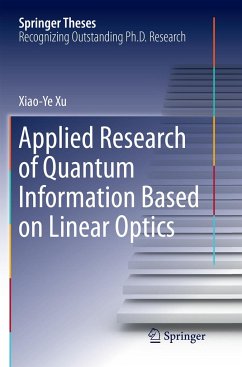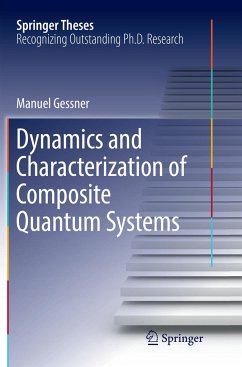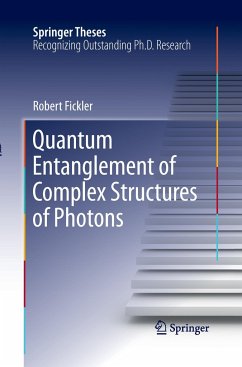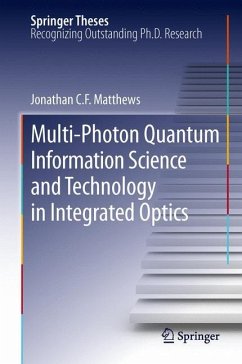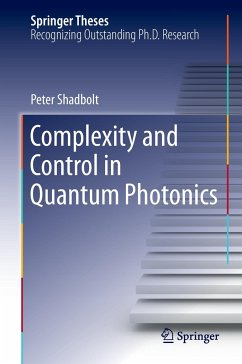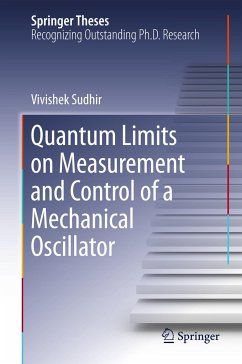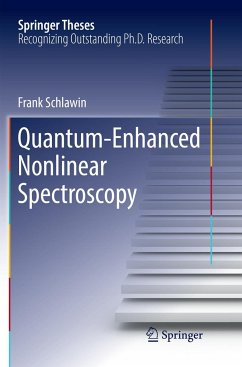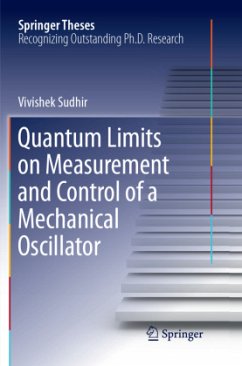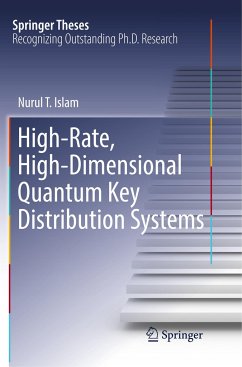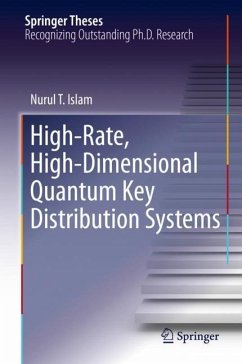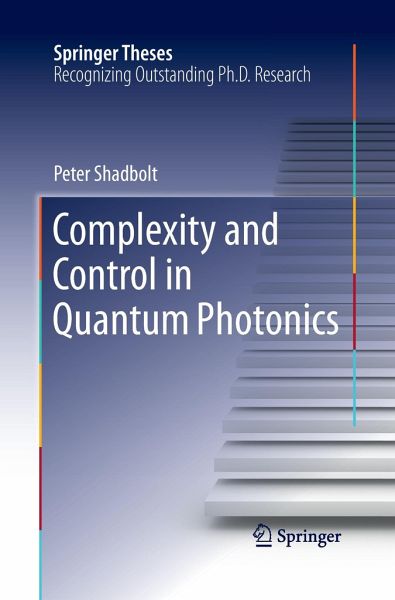
Complexity and Control in Quantum Photonics
Versandkostenfrei!
Versandfertig in 6-10 Tagen
76,99 €
inkl. MwSt.
Weitere Ausgaben:

PAYBACK Punkte
38 °P sammeln!
This work explores the scope and flexibility afforded by integrated quantum photonics, both in terms of practical problem-solving, and for the pursuit of fundamental science. The author demonstrates and fully characterizes a two-qubit quantum photonic chip, capable of arbitrary two-qubit state preparation. Making use of the unprecedented degree of reconfigurability afforded by this device, a novel variation on Wheeler's delayed choice experiment is implemented, and a new technique to obtain nonlocal statistics without a shared reference frame is tested. Also presented is a new algorithm for qu...
This work explores the scope and flexibility afforded by integrated quantum photonics, both in terms of practical problem-solving, and for the pursuit of fundamental science. The author demonstrates and fully characterizes a two-qubit quantum photonic chip, capable of arbitrary two-qubit state preparation. Making use of the unprecedented degree of reconfigurability afforded by this device, a novel variation on Wheeler's delayed choice experiment is implemented, and a new technique to obtain nonlocal statistics without a shared reference frame is tested. Also presented is a new algorithm for quantum chemistry, simulating the helium hydride ion. Finally, multiphoton quantum interference in a large Hilbert space is demonstrated, and its implications for computational complexity are examined.



